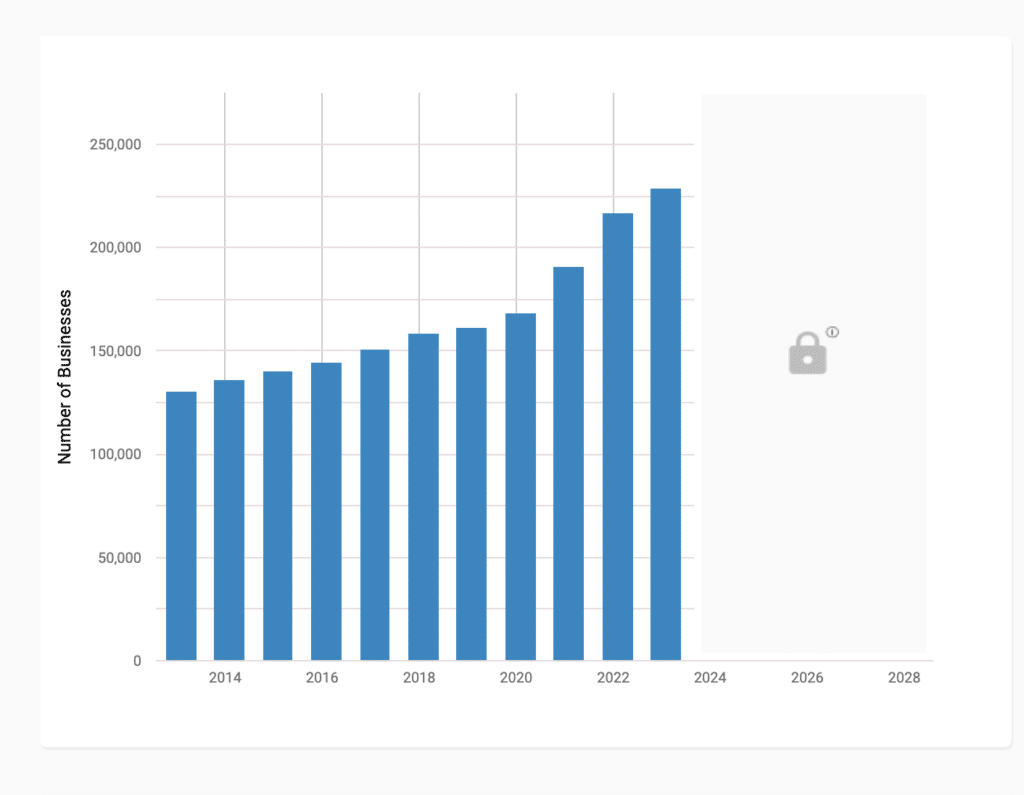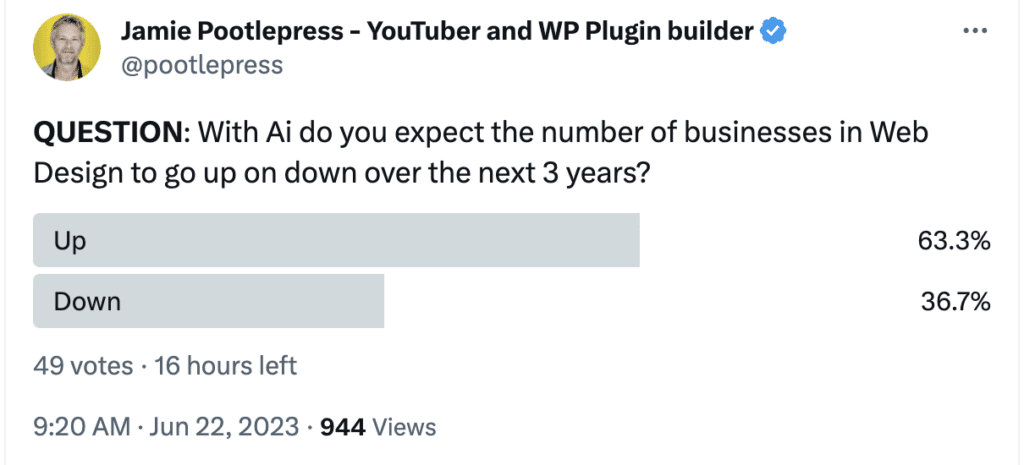In an ever-evolving digital landscape, technologies that once seemed indispensable are now relics of the past, replaced by more efficient, more accessible systems. A question looms for web agencies: could they face a similar fate as typesetters? This article will delve into this possibility, providing insights into how advancements like WordPress and AI might redefine the role of web agencies and freelancers.
The Life and Death of Typesetting
The story of typesetting serves as a poignant lesson in the face of technological evolution. Typesetters were the meticulous artisans of the pre-digital age, responsible for arranging each letter and space individually to prepare for printing. Their role was critical in the process of transferring ideas onto paper.
At the height of the printing press era in the mid-20th century, the demand for typesetting was so significant that over 150,000 typesetting machines were sold between 1950 and 1995. These professionals held an irreplaceable position in the publishing industry, with their skills in high demand.
However, the advent of desktop publishing in the late 20th century initiated a tectonic shift in the typesetting industry. Sophisticated software and hardware began to automate the meticulous process that was once a manual art. The number of typesetters started to dwindle as their tasks became increasingly managed by machines and digital tools.
The transitional period was turbulent and often challenging. Some typesetters managed to adapt, learning new digital typography skills to keep up with the changing times. However, many others found their skills becoming redundant and struggled to find their place in the new digital age. By the late 1990s, traditional typesetting jobs had decreased by more than 50%, and the trend continued downwards.
Today, the profession of typesetting is virtually non-existent, replaced by digital design tools that automate the entire process. This significant transformation serves as a stark reminder of the pace at which technology can revolutionize an industry and change the trajectory of professions that once seemed indispensable.
The Role of Web Agencies and Freelancers Today
Web agencies have become the digital equivalent of typesetters in the 21st century. They design, code, and manage websites, translating a brand’s vision into a digital reality. Much like the typesetters of old, web agencies and freelancers bring a unique blend of creativity and technical expertise.
These agencies are indispensable for many businesses, translating complex coding languages into visually appealing, user-friendly websites. They help businesses establish their digital presence, leveraging their knowledge of design principles, user experience, and web standards.
The Emerging Threats: WordPress, AI, and Other Technologies
However, platforms like WordPress, offering ‘website-in-a-box’ solutions, have started challenging the traditional role of web agencies. WordPress simplifies website creation, making it accessible to anyone, regardless of coding knowledge.
The real game-changer, though, could be AI. With advancements in machine learning and automation, AI is beginning to edge into web design and management territory. Automated web design tools, predictive analysis, and user behavior tracking are just a few AI capabilities posing a significant threat to the traditional role of web agencies.
The current state of web agencies (in the US)
According to ibisworld.com there are 228,772 Web Design Services businesses in the US as of 2023, an increase of 7.6% from 2022. The value of the US web agency market is $58 Billion, with over 1 million people employed.

The Future of Web Agencies: Adapt or Become Obsolete?
The advancements in technology, especially with WordPress and AI’s expanding capabilities, draw a looming shadow over traditional web agency services. However, as with the story of typesetters, it’s clear that adaptation is critical to survival. Let’s dive into the various ways web agencies and freelancers can continue to stay relevant in the era of AI.
Shifting Focus to Strategy and Creativity
Firstly, agencies must recognize that while AI is becoming proficient in automating many tasks, it lacks the human touch—strategic thinking and creativity. A website is more than just a digital footprint; it’s a narrative, an extension of a brand’s story. Agencies should place more emphasis on crafting creative and unique designs, and providing strategic consulting services that enhance a brand’s identity and engagement with its target audience.
Harnessing the Power of AI
Rather than viewing AI as a threat, web agencies could use it as a tool to optimize their services. AI can automate routine tasks, freeing up agencies to focus on more complex and personalized work. For instance, AI can be used for predictive analysis, real-time website customization, and intelligent data analysis, enhancing the agency’s offering to its clients.
Expanding Skillsets and Services
Web agencies and freelancers should consider expanding their services beyond just web design and development. They could delve into related areas like SEO, digital marketing, social media management, and content creation. By offering a broader range of services, they can become a one-stop-shop for clients’ digital needs, increasing their value proposition.
Specialization and Niche Marketing
Specializing in specific areas of web development or catering to particular industries could be another survival strategy. Agencies could build a reputation as specialists in e-commerce sites, mobile applications, or websites for particular sectors like hospitality or finance. This approach can help them stand out from competitors and provide more targeted, expert service.
Building Relationships and Networks
Finally, the importance of relationship-building cannot be underestimated. Unlike AI, humans crave connection and relationships. By building strong relationships with clients, providing excellent customer service, and nurturing professional networks, agencies can ensure they remain the go-to experts for their clients’ digital needs.
The community is optimistic
To test sentiment I ran a Twitter Poll asking if people thought Ai would help or harm the web design sector. The results somewhat surprised me, with a clear majority believing that Ai would help the web design sector grow.

Conclusion
In the digital age, evolution is not just advantageous—it’s necessary. Web agencies, like all businesses, must be willing to adapt and change with technological advancements. Rather than viewing these changes as a threat, they should be seen as an opportunity—an opportunity to refine services, streamline processes, and embrace new ways of delivering value to clients.
Technology’s transformative power is inevitable. It’s reshaped countless industries, and it will continue to do so. What remains to be seen is how web agencies will respond—will they adapt and evolve, or will they join the ranks of the typesetters? Only time will tell.
Leave a Reply